
We kindly inform you that, as long as the subject affiliation of our 300.000+ articles is in progress, you might get unsufficient or no results on your third level or second level search. In this case, please broaden your search criteria.

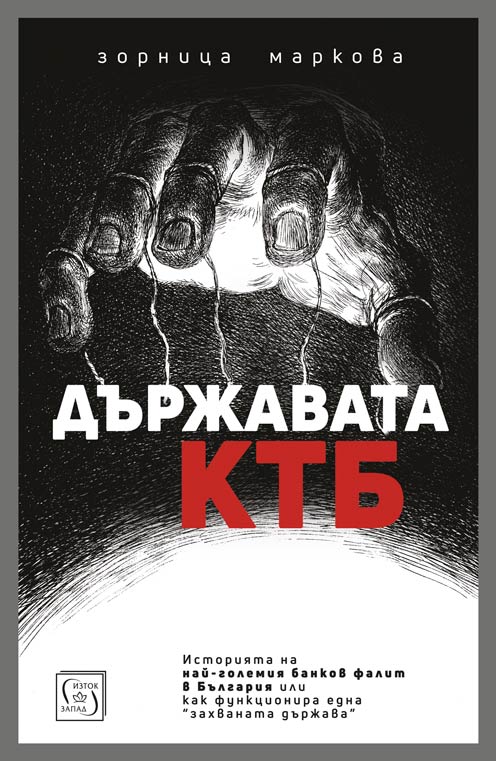
This book is the result of a two-year journalistic investigation that traces the history of Corporate Commercial Bank from its origin to its bankruptcy (1994-2014). The investigation was conducted on the basis of dozens of meetings with direct participants or witnesses of the events, representatives of state structures, political parties, business, regulators. In the process, hundreds of official and informal documents have been analyzed. Access to information by Bulgarian and international organizations has been requested many times. The collected facts, data, documents, and exclusive testimonies included in this book contain for the first time conclusive evidence of political corruption in Bulgaria. The aim of the KTBfiles project is to show the genesis of the "CCB model" (Corporate Commercial Bank model) and the technology of its expansion to magnitude, which pressed all key state institutions to the wall. The book explores the circumstances that made this vicious model possible, as well as the mechanisms for its eradication. This makes the investigation much more comprehensive, multi-layered and important than the chronology of bank bankruptcy, whether it is the largest in Bulgarian history. This qualitative journalistic investigation answers not only to the question #WHO but also to the questions how, why and especially what follows if we stop asking and live permanently with civil indifference and cynicism.
More...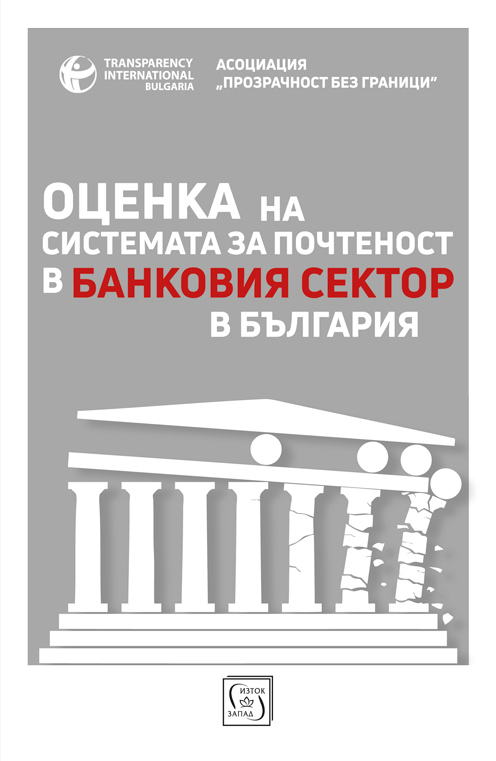
This study is provoked by one of the most significant cases of abuses over the last two decades in Bulgaria - the bankruptcy of CCB (Corporate Commercial Bank), the fourth largest bank in the country. After the 1996-1997 crisis, when one third of the banks went bankrupt, the country's banking sector collapsed. This is the second case in which huge financial resources "evaporated" and the negative consequences affected a wide range of public institutions and private subjects. The emergence of periodically recurring financial crises, with multiple impacts on public, economic and political life, motivates Transparency International Bulgaria to look for a systematic response to the problem and look beyond the specific case. The present book is based on the analytical approach of the international anti-corruption organization Transparency International "National Integrity System" which assesses clearly defined criteria, the capacity, functioning and management of sectors and institutions with key importance in counteracting corruption. The study is based on an analysis of the legislation and practical actions of the investigated institutions, a wide range of documentary sources, reports, assessments, media publications, and interviews with experts and public figures that have had direct observations and touch with the CCB case. It reflects an attempt to formulate an impartial, objective assessment of the functioning of the banking supervisory system in the 2009-2014 periods but also pursues another objective - to serve as a starting point for policies and strategic actions to give an adequate systemic response to established deficits. Viewed through this prism, this publication expresses the ambition of the Transparency International Bulgaria to not only prevent future crises of this nature, but also to contribute to the institutional strengthening of the system of supervisory institutions in Bulgaria.
More...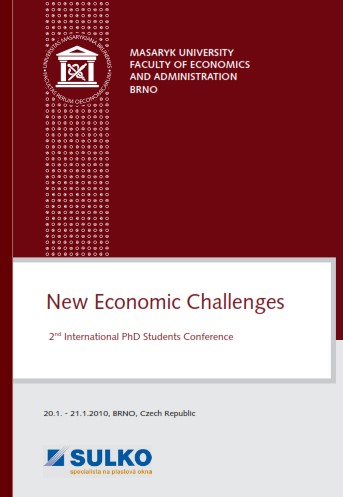
This study deals with the possible link between pension funds, venture capital and innovation to manage the challenge of aging. Institutional capacities of Hungarian second pillar is engrossed by the reallocation of it's bond and stock portfolio - therefore "exotic" investments as selected investment into the real economy by means of venture funds is uninterested. Innovative SME-s have low share on venture capital market of Visegrad countries. This is inconnection with the neofordist or knowledge user profile of the subnational regions of these countries.
More...
There is extensive argument that political risk is an imperative and increasing influence on international portfolio allocation decisions. The purpose of this paper is to investigate the relation between abrupt political events and stock returns of Bombay Stock Exchange in India. The issue is examined using a dummy variable regression model controlled for the effect of lag market returns.
More...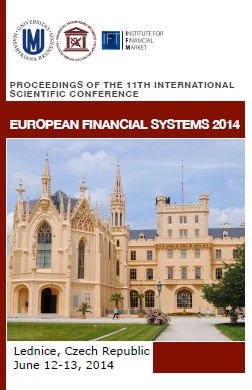
Uncertainty on financial markets during the financial crisis brings the changes in the holding of liquidity of all economic agents. The main goal of this contribution is to assess the nature of these movements in liquidity structure and on this basis to determine potential risks for meeting monetary goals of central banks. Methodologically, flow of funds analysis is used. Special attention is paid to portfolio and credit shifts in the holding of liquidity.
More...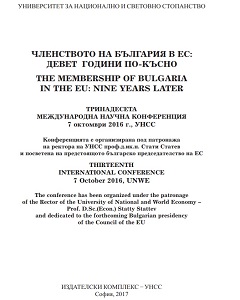
This book collects scientific papers and reports presented on the conference ‘The Membership of Bulgaria in the EU: Nine Years Later’ organized by the International Economic Relations and Business Department at University of National and World Economy (UNWE), Sofia, Bulgaria. The conference, held on 7 October 2016, was dedicated to the upcoming Bulgarian Presidency of the Council of the EU. The contributors to the present edition of the book explore topics such as European integration and Cohesion, the role of the financial centres in the EU, development in the banking sector, Banking union, Eurozone and inflation, financial risk mitigation. Researchers discuss some EU strategic goals such as the energy union and environmental policies, energy economics, electricity generation, energy markets and liberalization as well as research activities and initiatives such as the program Horizon 2020. Authors review aspects related to the organizational issues, change management, communication in organizations, business culture, corporate social responsibility, corporate governance, irregularities and financial corrections. The book contains in-depth research related to the innovations and outsourcing, digital marketing, regional financial sustainability in Bulgaria and analysis on the local tourism. ‘The Membership of Bulgaria in the EU: Nine Years Later’ is an annually organized academic event with the vision to foster open dialogue, offer contemporary research and exchange of ideas between fellow academics, policy makers, businesses, stakeholders and the public.
More...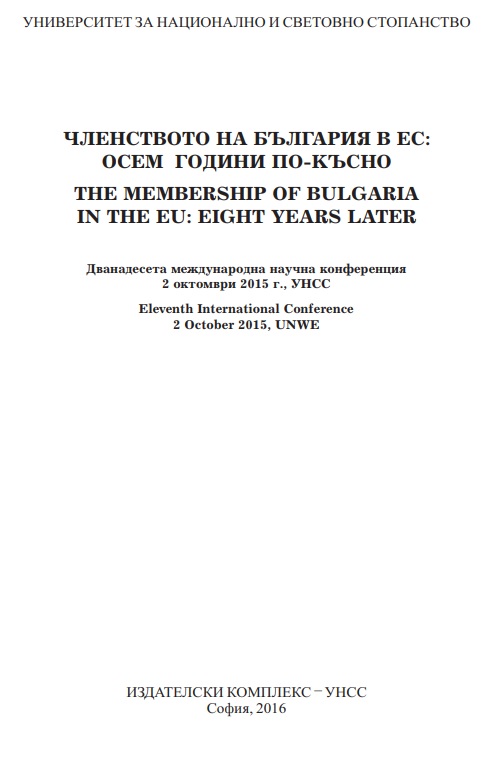
This book collects scientific papers and reports presented on the conference ‘The Membership of Bulgaria in the EU: Eight Years Later’ organized by the International Economic Relations and Business Department at University of National and World Economy (UNWE), Sofia, Bulgaria. The conference, held on 2 October 2015, traditionally provided a stage for prominent academics, dedicated PhD students and professionals to discuss contemporary topics related to multiple aspects of the European integration, its effects on the Bulgarian economy, value chain and socio-economic environment, international business and relations, financial markets and banking.The contributors to this edition of the annual conference book reviewed the European integration and development though the perspectives of the fiscal and political measures to tackle the consequences of the financial crisis in both the Euro area and the other EU member states, implications on the banking sector, foreign direct investment, risk mitigation. The financial crisis and the results in the aftermath of it (capital liquidity imbalances, fiscal instability, banking volatility, quantitative easings and Euro area performance indicators, to name a few) are dominating among the majority of authors’ research. The contributors review issues related to the corporate management, corporate governance, sustainable education, organizational design, digital marketing, ethical PR and media, talent development in large organizations. Another group of researchers offer in-depth reviews of the current EU institutional framework, emerging questions related to the energy security and the EU energy policy as well as the environment on a global level, healthcare and business innovations. ‘The Membership of Bulgaria in the EU: Eight Years Later’ is an annually organized academic event with the vision to foster open dialogue, offer contemporary research and exchange of ideas between fellow academics, policy makers, businesses, stakeholders and the public.
More...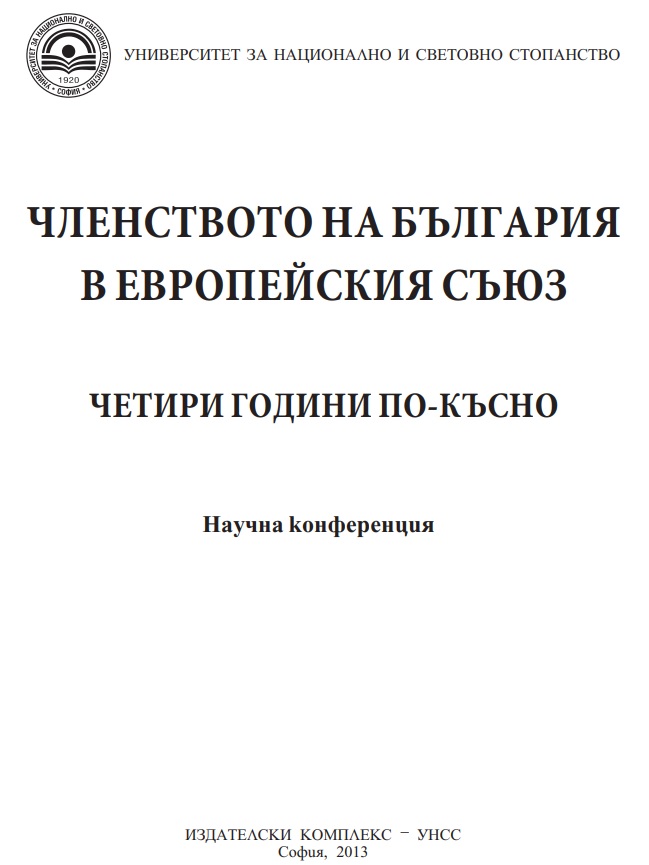
This book collects scientific papers and reports presented on the conference ‘The Membership of Bulgaria in the EU: Four Years Later’ organized by the International Economic Relations and Business Department at University of National and World Economy (UNWE), Sofia, Bulgaria. The conference, held on 3 October 2010, traditionally provided a stage for prominent academics, dedicated PhD students and professionals to discuss contemporary topics related to multiple aspects of the European integration, its effects on the Bulgarian economy, socio-economic environment, international business and relations, finance and politics.The conference was opened with a keynote speech by Meglena Kuneva who used to serve in the European Commission and is a prominent figure in the Bulgarian political life associated with the European integration process and accession to the European Union. She highlighted that the Bulgarian membership in the European Union is a rare example of widely shared national consensus in the past 22 years. Meglena Kuneva presented arguments in favour of this membership while noting challenges that remain unsolved years after our accession – we shall understand better the signs given by Brussels as well as put an emphasis on the human factors. Kuneva shared the view that commitment and high ethical and professional standards are required when appointments are made for the EU funds governance on a national level. We shall be more active towards EU in our contribution, she concluded. The participants in the conference presented research about the multiple effects on the Bulgarian economy as a result of the EU membership and access to the Single market. Authors discussed the international competitiveness of the Bulgarian export industry, they dedicated analysis on the Bulgarian trade with the other EU member states as well as industrial concentrations among the countries sharing single market. The liberalization of the telecommunications market in Bulgaria, reforms in the regulations of the pension funds and public procurement is among the topics presented. Another group of academics discussed current trends in the global economy, regional and global challenges to the EU. Those processes would have implications on the entire EU bloc. This could be related to the role of the Euro as an international currency as well as the development of the economic and monetary union (EMU) within EU. Contributors review topics related to the real and nominal convergence of Bulgaria and other countries in the EMU and the Bulgarian contribution and participation in key EU policies. Some authors present research on the challenges and achievements regarding the absorption of the EU funds in Bulgaria and implementation of the operating programs. Group of papers is dedicated to the international business environment, transnational organizations, international standardization through ISO, quality assurance and management, employees’ performance, and organizational culture. ‘The Membership of Bulgaria in the EU: Four Years Later’ is an annually organized academic event with the vision to foster open dialogue, offer contemporary research and exchange of ideas between fellow academics, policy makers, businesses, stakeholders and the public.
More...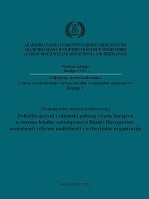
The paper entitled Financial and Institutional Capacity as a Determinant of the Role of the City of Sarajevo in the Development of the Region was formed based on the invitation of the organizers of the international scientific conference Political-Legal and Legal Position of the City of Sarajevo in the System of Local Self-Government in Bosnia and Herzegovina. The topic was positioned as the sixth last topic within the second part of the conference entitled Socio-economic and spatial-urban assumptions for the development of the City of Sarajevo until 2030. The role of the City of Sarajevo in the development of the Sarajevo Region is determined by the financial and institutional capacity of the City of Sarajevo. This shaped topic reflects the problem of financial and institutional capacity of the City of Sarajevo in the context of its role in the development of the narrower and heavier gravitational environment. Two questions arise in this context. First, what is the financial capacity of the City of Sarajevo comparatively with the capital cities in the region, with the Sarajevo Canton, local self-government units? Secondly, what is the institutional capacity of the City of Sarajevo in the process of strategic planning and management of the development of the narrower and wider gravitational area? The answer to the questions is sought based on comparative analysis. The paper could help in understanding the role of the City of Sarajevo in the development of the administrative and functional-gravity region according city institutional and financial capacity.
More...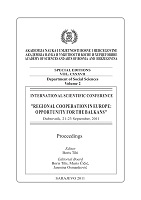
The Council of Ministers of Bosnia and Herzegovina has adopted full integration of the country into the European Union (EU) as its major goal. This objective is supported by the large majority of population in Bosnia and Herzegovina. However, the EU membership requires from all governments to meet a number of so called socio-economic conditions to ensure harmonization with the EU regulations and procedures. These policies were adopted by the European Council in 1993 in Copenhagen and which are known as the “Copenhagen criteria”. The fulfilment of them requires from each candidate country to implement a number of sub-criteria to enable to its economy to endure all competitive pressures from the EU common markets once full membership is achieved. Accession process also requires from the candidate countries to combat poverty and social exclusion, and to reform their social protection systems on the basis of policy exchanges and mutual learning. Finally, candidate countries have to improve capacity for implementation of the EU cohesion policy (2007-2013) which has been designed to bring social cohesion and to reduce gap between the levels of development of various regions across the EU. Bosnia and Herzegovina has made significant progress in years after the 1992-1995 war. However, implementation of the key structural reforms has lagged behind, notably those related to privatization, building export base and improving competitiveness. As result, Bosnia and Herzegovina has reached the pre-war GDP per capita just three years ago. Despite all shortfalls, Bosnia and Herzegovina has substantial potentials for a continued economic growth. However, the slowness in implementation of key reforms, in particular the structural reforms, is placing significant limitations and posing risks for meeting key socio-economic criteria for the EU integration. Ongoing political crisis has hindered economic recovery. As result, the international agency Moody’s has lowered credit rating of the country from stable to risky citing the political crisis as the main cause of economic difficulties. There are no doubts that majority of population of BiH supports the EU aspirations as much there are no doubts that all member states of the EU support full integration of BiH into the EU. However, the road to EU does not come without cost. Serious institutional and legislative adjustments are required to be carried out by all accession countries and Bosnia and Herzegovina is no exception to this process. Nevertheless, while the process of institutional strengthening and legislative adjustments have taken place, strengthening of the macroeconomic and structural policies to support EU integration has not received proper attention neither by the public or governments. The economic agenda for the EU accession is well known and unavoidable. It will have to be tackled by all governments if further progress is to be made. Meeting Copenhagen criteria has been for all other accession countries a serious test of their preparedness for the full membership. These criteria are designed to strengthen competiveness of the accession country’s economy to make it able to endure competitive pressures of the EU common market once full EU membership is achieved. In the case of Bosnia and Herzegovina meeting of the socio-economic criteria will require highest possible commitment on the Government but also on the public side to implement difficult and painful reforms, first and foremost to complete unfinished transition agenda and to build export-led economy fully integrated into the EU common market. Otherwise, rising foreign debt due to borrowing from the IMF (close to commercial terms), growing budget deficits, unemployment and current account deficit together with weak mobility and flexibility of the labour market are serous treats to macroeconomic stability. Under these circumstances, reaching the accession targets related to meeting the Copenhagen criteria and preparing the Bosnian economy for the membership at the EU common market will become highly challenging if not unrealistic.
More...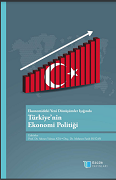
Ülkeler çeşitli gelişmişlik seviyeleri mevcut olup bazı ülkeler fakirliğin kısır döngüsü çemberinde az gelişmiş ülkeler sınıflandırılmasına tabi olmakta bazı ülkeler ise yüksek refahın devamının sağlanması amacını güden gelişmiş ülkeler kategorisinde yer almaktadır. Ülkelerinin temel hedefleri ekonomik büyüme ve kalkınmayı sağlamaktır. Az gelişmiş ve gelişmekte olan ülkelerin içinde bulundukları yoksulluğun kökeninde neyin yattığının anlaşılması, doğru ekonomi politikaları üretebilmek açısından son derece önemlidir. Ülkelerin mevcut gelişmişlik seviyesini oluşturan alt unsurların anlaşılması gelişmişliğe doğru giden yolda önemli bir harita sunmaktadır. Gelişmişlik, coğrafi, kültürel ve doğal kaynaklardan etkilenmekle birlikte bunlar gelişmişliğin açıklanmasında yeterli açıklayıcı unsurlar değildir. Aynı coğrafyada farklı gelişmişlik seviyesine sahip ülkeler mevcutken faklı coğrafi bölgelerde aynı gelişmişlik seviyelerinde ülkeler de bulunmaktadır. Kuzey ve Güney Kore bu konuda önemli bir göstergedir. Ekonomik kalkınmanın sadece üretimdeki artış ve verimlilikle açıklanamayacağının anlaşılması üzerine demokrasi kavramı irdelenmeye başlanmıştır. Ekonomik büyüme ve kalkınma kavramlarının tam anlamıyla açıklanabilmesi için ekonomik göstergeler yanında, sosyo-demografik göstergelerin, ekonomi politikaların, kurumsal yapının ve demokratik unsurların da dikkate alınması gerekmektedir.
More...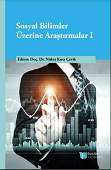
This study addresses the fact that Neoliberalism, while developing individual normative ideas, failed to develop a theory of a closed society and focused on shaping society in accordance with a market society. Methodologically, an approach has been adopted aimed at establishing this basic position based on the texts of Friedrich von Hayek and other Neoliberal figures. The ideas about the evolutionary formation of the market and society put forward by Hayek are considered the most important reference point of Neoliberalism. The main goal of neoliberalism is to shape society in accordance with a market society. However, when looking at its applications, Neoliberalism has the appearance of a project for the disintegration of politically organized society. Individual freedom in the neoliberal sense, on the other hand, consists only of non-discrimination in market participation. The aim of the study is to show that Neoliberal market society and market individual understanding cannot be the solution to today's social problems.
More...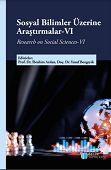
Throughout the history of the Republic, it has been an important debate that media organizations did not act completely independently of the governments. Political and economic developments since the 1980s have brought the power-media and power-capital relations to a different stage. With the increase in costs, media organizations began to fall into the hands of capital groups. In this period, which is considered as the change of ownership structure in newspapers, it is seen that the relations of power, media and capital affect the media news content. Following the process that started with Asil Nadir's entry into the media market, capital groups entered the sector in order to use the power of the media and to be influential in the political arena, or accelerated the conglomerate process by purchasing existing media organs. On the other hand, the changes created by the political cycle and the ideological biases arising from the ownership structure of the media shape the news content. In this context, the sale of Doğan Medya to Demirören Group is seen as the beginning of an important change in media history. The change in the ownership structure in the media, thus moving away from a journalist-based structure to a conglomerate structure and the problems it brings together form the basis of the study. In this article, which was prepared with a critical political economy perspective, the oligopolization of the media in Turkey was tried to be explained through the sample of Demirören Holding.
More...
Neoliberalizam je već dugo na putu kolizije sa brigom. Teoretičari najrazličitijih disciplina su razmatrali kako su neoliberalni principi i institucije negativno uticali na prakse i politike pružanja brige. Ekonomisti (Wrenn i Waller 2017), geografi (Lawson 2007; Smith 2005), filozofi (Fraser 2016; Gary 2021), sociolozi (McGee 2020), antropolozi (Nguyen, Zavoretti i Tronto 2017; Povinelli 2011), politolozi (Tronto 2013) i teoretičari rodnih studija (Glenn 2010) su svi ispitivali krizu brige pod neoliberalizmom. Na različite načine, prepoznali su komplicirane i problematične načine na koje se potreba za brigom povećavala kako su venule društvene i institucionalne strukture koje brigu podržavaju. Mada postoji obilje sjajnih istraživanja ekonomskih, socijalnih i političkih implikacija neoliberalizma, dosta manje moralnih kritika neoliberalizma možemo naći.1 Nastojat ću se pozabaviti ovom prazninom kroz analizu krize brige koja je informirana etikom brige. Pri tome ću detaljno razmatrati i moralnu prekarnost i relacionu prekarnost koje ugrožavaju nužne prakse davanja i primanja brige u neoliberalizmu.
More...
Koncept ranjivosti bitno se razlikuje od koncepta prekarnosti, iako oba u prvi plan stavljaju ideje fragilnosti. Ranjivost se konceptualizira u smislu slabosti povezanih sa ljudskim utjelovljenjem. Etika brige se stoga može nazvati etikom ranjivosti jer je odgovaranje na “neizbježne zavisnosti” starosti, bolesti i smrti njen normativni temelj. Moralno preoblikovanje u pravcu brige, naposljetku, događa se “kada na ranjivost zavisnosti, a ne na uplitanje drugih u naše živote, gledamo kao na glavnu moralnu brigu” (Kittay, Jennings i Wasunna 2005, 454; kurziv moj). Unutar izrazito relacijskog okvira brige, ono što dugujemo drugima i zašto to dugujemo motivirano je potrebama koje proizilaze iz činjenice da smo ljudsko biće sa tijelom. Ali, u tom slučaju, može li se etika utemeljena na univerzalnim tjelesnim zavisnostima baviti situacijskim patnjama koje ne dijelimo? Ideja prekarnosti, za razliku od ranjivosti, signalizira isključive političke poretke i ideologije koje neke osobe čine ranjivijima od drugih. Svi se, na primjer, razbolijevamo, ali mnogi nemaju pristup zdravstvenoj zaštiti i njihova je patnja nesrazmjerno veća zbog siromaštva. Dakle, postoji jaz između ontoloških uslova fragilnosti koji zahtijevaju “brigu” i političkih uslova prekarnosti koji zahtijevaju ideološke i društvene promjene. Estelle Ferrarese (2016) stoga razlikuje ranjivost kao “stanje” i prekarnost kao “proces” kreiran politikama isključivanja koje se često poistovjećuju sa neoliberalnim agendama.
More...
Danas postoji opsežan konsenzus o ideji da globalizaciju, ili ono što ja radije nazivam globalnim dobom, karakterizira ne samo vremensko-prostorna kompresija, već i međuzavisnost događaja i života. Teza koju nastojim zastupati jeste da ova vremensko-prostorna kompresija objektivno proizvodi proširenje figure drugog, tačnije “značajnog drugog” (Mead [1934] 2015) jer, da upotrijebimo riječi Marthe Nussbaum (2001), i prostorno daleki drugi i vremenski daleki drugi ulaze u naš “krug zabrinutosti”. Zbog erozije teritorijalnih granica i brzine komunikacija, informatičke tehnologije i uniformnosti koju proizvodi tržište, a prije svega zbog globalnih izazova, čini se da svijet postaje sve manji i manji, te da potencijalno mijenja našu percepciju udaljenosti od država, mjesta i ljudi.
More...
Rad etičarki brige kao što su Sara Ruddick (1989), Joan Tronto (1993) i Fiona Robinson (1999) postavio je značajne temelje u smislu rada usmjerenog na etiku brige koja je i kritična i politička. Etika brige u ovoj tradiciji nastoji se uhvatiti u koštac s političkim pitanjima koja okružuju institucije (npr., FitzGerald 2020; Stensöta 2010; Tronto 2010; Urban 2019), demokratiju (npr., Sevenhuijsen 1998; Tronto 2013) i potencijal brige kao globalne etike (npr., Held 2006; Robinson 2013).
More...
U kritičkim humanističkim naukama i radovima više se ne smatra kontroverznim da neoliberalna politika i prekarnost idu ruku pod ruku. Njihov se odnos sada prepoznaje kao duboko zamršen, čak i kao sukonstitutivan, i stoga kao teško odvojiv. Prekarnost je zabrinjavajuća dijelom zbog svojih utjelovljenih i materijalnih efekata, koji su stvarni, opipljivi i nepovratni. Ti efekti također “ne nestaju”, već su tu da ostanu; i, što je možda najviše zabrinjavajuće, ti efekti su mnogostruki, odnosno mogu imati–i imaju–više oblika ili značenja. Poučeno feminističkim novim materijalizmom (FNM) i feminističkom teorijom, ovo poglavlje predlaže rad s novom dinamičkom i agensnom koncepcijom materije kako bi se omogućio drugi tok značenja “prekarnih stvari”–onaj koji je etičniji i prihvatljiviji za život.1 Tvrdim da ovaj rad može bitno obogatiti etiku brige, jer ima cilj odgovoriti na sve veću, sve goru i globaliziranu prekarnost. Još hrabrije, predlažem da to radim sa materijom, koja se smatra agensnim, odnosno mogućim učesnikom-u-akciji.
More...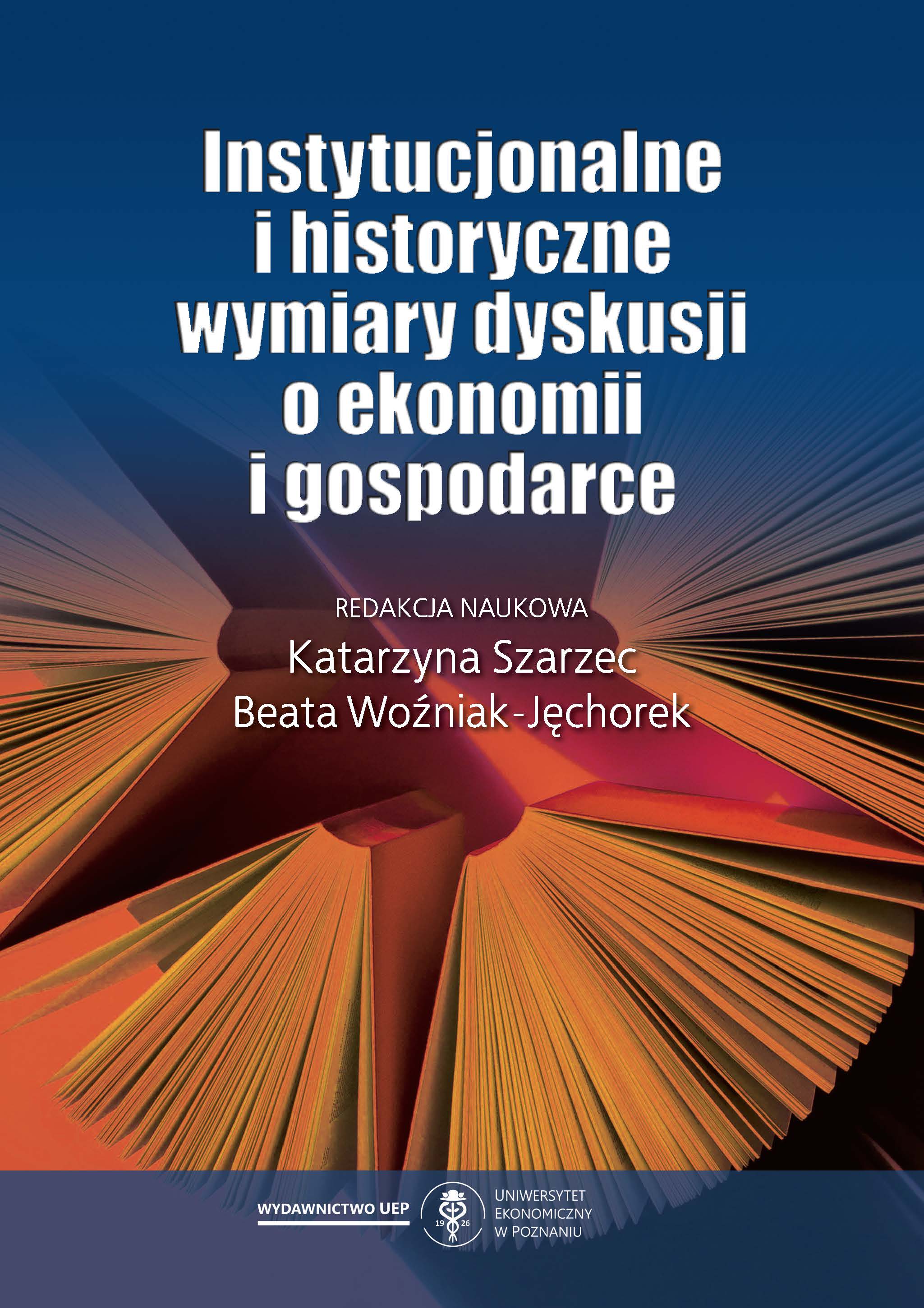
The aim of the chapter is to show the evolution of forms of money, indicating the institutional determinants of changes. The analysis presented in the chapter shows that over the centuries – with the development of the economy and the increasing importance of trade – the nature and role of money have changed. At the same time, forms of money have also evolved – from primitive payers to modern electronic or digital money. The evolutionof money was however supported by institutional changes in the economies and financial systems. Currently, fiat money coexists in the form of physical cash and electronic money, what results and is backed by evolved role of the central bank. The presented evolution of the forms of money confirms also a paradox of banknotes – on the one hand, there is a reductionin the role of cash in payment systems, and on the other hand, there is an increase in demand for high-denomination banknotes due to the value storage motive. The role of cash increases in times of crisis. At the same time, central banks are working on a new form of money – central bank digital currency (CBDC). The dual role of central banks in the provision of money (physical and electronic) to the economy is a proof of the strong institutional background in the evolution of the forms of money. The current phase of money evolutionis also connected with strengthening of the role of central banks in economic life thanks to the increase in their importance in areas that have not been their domain so far. To sum up, the presented analysis shows that the evolution of money is strongly dependent on the changing role of institutions in the economy. Currently, the decisive one is the central bank, which is the main entity shaping the evolution of money. However, this broad and expanding role (from purely physical to digital as well) strengthens the central banks themselves.
More...